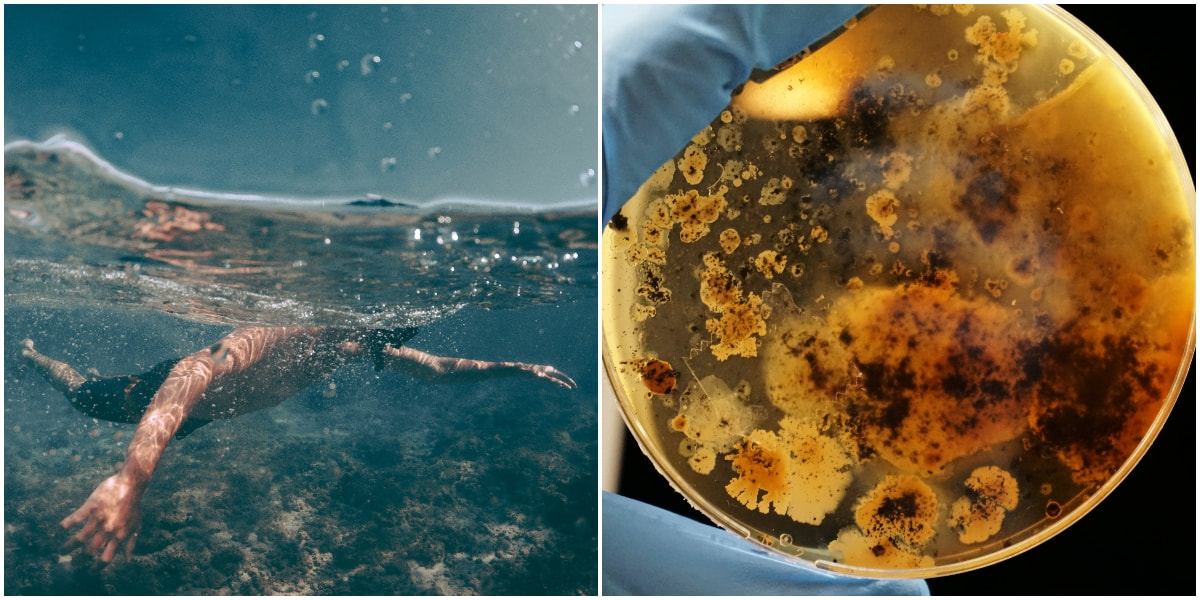|
In many ways the beach has healing properties--there's no doubt about it--but that doesn't mean you should start using the ocean as bathwater anytime soon. If you ever find yourself wondering should you shower after going to the beach, the answer is absolutely yes, and science says the sooner the better. While it might seem contradictory that the ocean's salt water could be bad for your skin (see another article about why sea salt is good for your skin for reference) the reason why you don't want seawater lingering on your skin isn't so much the salt (though it too can become abrasive after drying), it's everything else accompanying it. Microorganisms such as viruses, fungi, bacteria and even small animals that call the sea home can hitch a ride on your skin and cause health problems when allowed to linger--and lingering increases the risk of contracting certain diseases. (Seriously, if there is one we should have taken away from the recent pandemic, it should have been the importance of washing our bodies with soap and clean warm water as something seemingly so simple can do wonders to help us avoid infections, including from organisms found in the ocean.) According to the Center for Disease Control, Vibrio vulnificus, a bacteria found in salt and brackish water can cause life-threatening wound infections, particularly among those with compromised immune systems. "Many people with Vibrio vulnificus infection require intensive care or limb amputations, and about 1 in 5 people with this infection die, sometimes within a day or two of becoming ill." Most people who contract this have had an open wound come in contact with salt water that wasn't properly disinfected afterwards, and though the infection is relatively rare, it's becoming notably more common in southern states including Florida. Other harmful common bacteria found at the beach (not necessarily exclusive to the water) include antibiotic resistant staph, E.coli and Tetanus. Likewise, water at the ocean can help spread and introduce viruses that cause warts (HPV), polio, hand foot and mouth disease, encephalitis, and acute conjunctivitis--to name a few--to your body, as well as fungal infections like athlete's foot and ringworm. (Another great reason to wear protective gear and take a hot, soapy shower after your visit.) And for some, worst of all, there are animals in the ocean that would love to call your body home! Most notable parasites you can find floating about in and around the ocean include tapeworms, roundworms, hookworms and sand fleas--and in the case of some hookworms, they can find their way into your body through your skin. Don't let this information scare you away from paradise, though. Many of these microorganisms can be found nearly anywhere, including your backyard. The key to enjoying a swim at the beach is to be cautious and follow basic health guidelines. The CDC recommends that you don't go into ocean water with open wounds or where animals have been defecating (specifically dogs who may be infected with parasites), also remember to bring disinfectant cream with you every time you go, wear water shoes, and of course, shower with soap and tap water when you get home. Never go into water that has an active health advisory and those who are immunocompromised may best choose to avoid beaches and ocean water altogether. If you want to know more about pathogens at the beach, this is a fantastic article by the American Society of Microbiology worth checking out. READ ALSO
0 Comments
Your comment will be posted after it is approved.
Leave a Reply. |
CATEGORIES |
|
|
Vertical Divider
|
Can't get enough?Uncover more of Florida through our channels below!
|
© COPYRIGHT 2015. ALL RIGHTS RESERVED.


 RSS Feed
RSS Feed